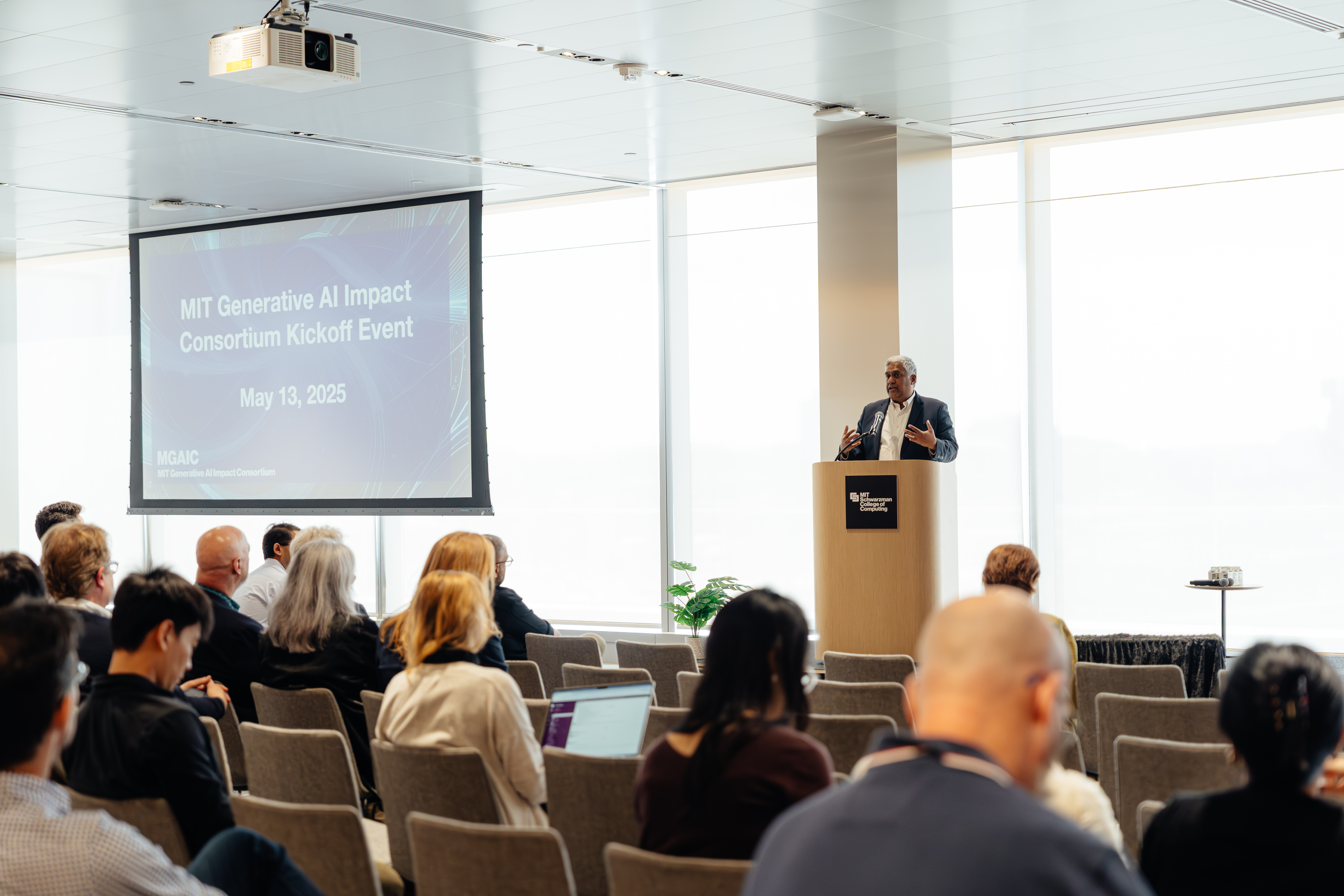Introduction to MIT’s Generative AI Impact Consortium
The MIT Generative AI Impact Consortium (MGAIC) was launched in February of this year as a presidential initiative. It is led by MIT’s Office of Innovation and Strategy and administered by the MIT Stephen A. Schwarzman College of Computing. The consortium issued a call for proposals, inviting researchers from across MIT to submit ideas for innovative projects studying high-impact uses of generative AI models.
Response to the Call for Proposals
The call received 180 submissions from nearly 250 faculty members, spanning all of MIT’s five schools and the college. This overwhelming response across the Institute exemplifies the growing interest in AI and follows in the wake of MIT’s Generative AI Week and call for impact papers. Fifty-five proposals were selected for MGAIC’s inaugural seed grants, with several more selected to be funded by the consortium’s founding company members.
Presentation of Proposals
Over 30 funding recipients presented their proposals to the greater MIT community at a kickoff event on May 13. Anantha P. Chandrakasan, chief innovation and strategy officer and dean of the School of Engineering who is head of the consortium, welcomed the attendees and thanked the consortium’s founding industry members. Chandrakasan stated, “The amazing response to our call for proposals is an incredible testament to the energy and creativity that MGAIC has sparked at MIT. We are especially grateful to our founding members, whose support and vision helped bring this endeavor to life.”
Highlights of the Presentations
Some of the presentation highlights include:
- “AI-Driven Tutors and Open Datasets for Early Literacy Education,” proposed by Ola Ozernov-Palchik, which aims to refine AI-tutors for pK-7 students to potentially decrease literacy disparities.
- “Developing jam_bots: Real-Time Collaborative Agents for Live Human-AI Musical Improvisation,” presented by Anna Huang and Joe Paradiso, which aims to enhance human-AI musical collaboration in real-time for live concert improvisation.
- “GENIUS: GENerative Intelligence for Urban Sustainability,” presented by Norhan Bayomi, which aims to address the critical gap of a standardized approach in evaluating and benchmarking cities’ climate policies.
Closing Remarks
Georgia Perakis, the John C Head III Dean (Interim) of the MIT Sloan School of Management and professor of operations management, operations research, and statistics, ended the event with closing remarks. Perakis emphasized, “the readiness and eagerness of our community to lead in this space.” She continued, “This is only the beginning. We are at the front edge of a historic moment — one where MIT has the opportunity, and the responsibility, to shape the future of generative AI with purpose, with excellence, and with care.”
Conclusion
The MIT Generative AI Impact Consortium has sparked significant interest and creativity among researchers at MIT. With the selection of 55 proposals for seed grants and the presentation of these proposals to the MIT community, the consortium is taking a major step towards shaping the future of generative AI. The projects presented have the potential to make a significant impact in various fields, including education, music, and urban sustainability.
FAQs
- What is the MIT Generative AI Impact Consortium?
The MIT Generative AI Impact Consortium (MGAIC) is a presidential initiative led by MIT’s Office of Innovation and Strategy and administered by the MIT Stephen A. Schwarzman College of Computing. It aims to study high-impact uses of generative AI models. - How many proposals were submitted in response to the call for proposals?
180 submissions were received from nearly 250 faculty members. - What were some of the highlights of the presentations?
Some of the highlights include proposals for AI-driven tutors for early literacy education, real-time collaborative agents for live human-AI musical improvisation, and generative intelligence for urban sustainability. - What is the goal of the MIT Generative AI Impact Consortium?
The goal of the consortium is to shape the future of generative AI with purpose, excellence, and care, and to make a significant impact in various fields.











